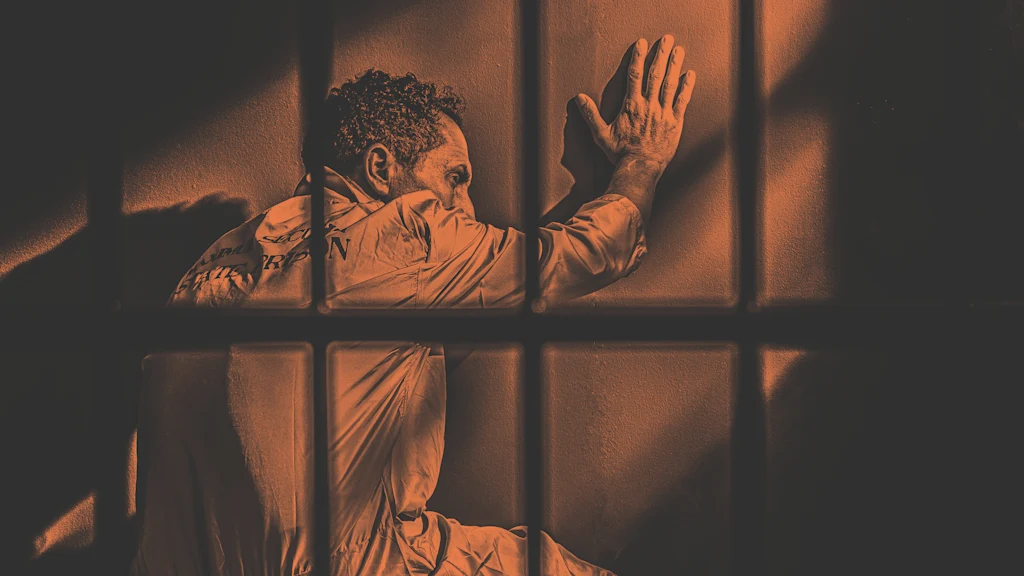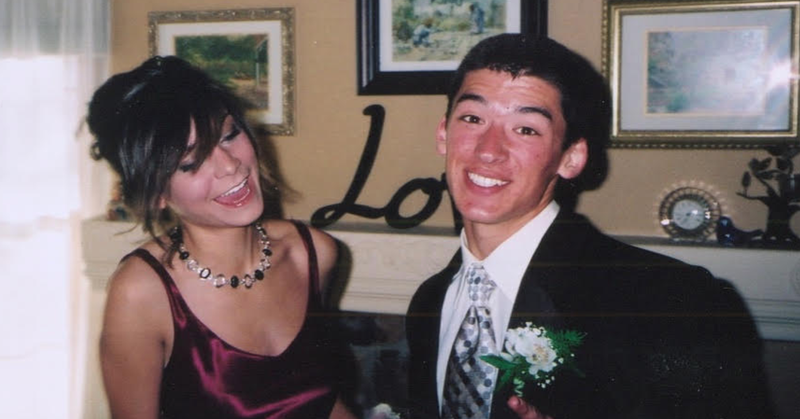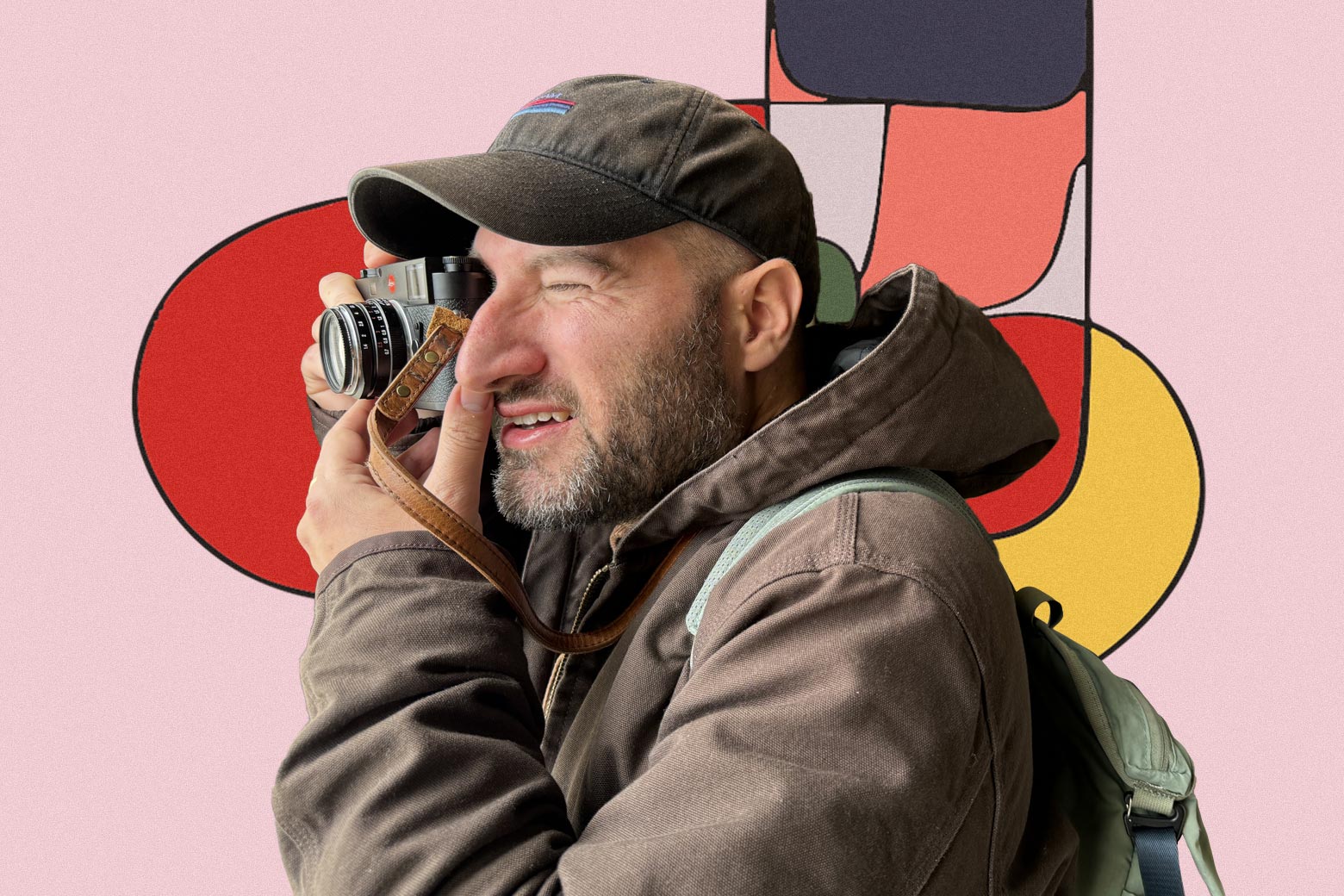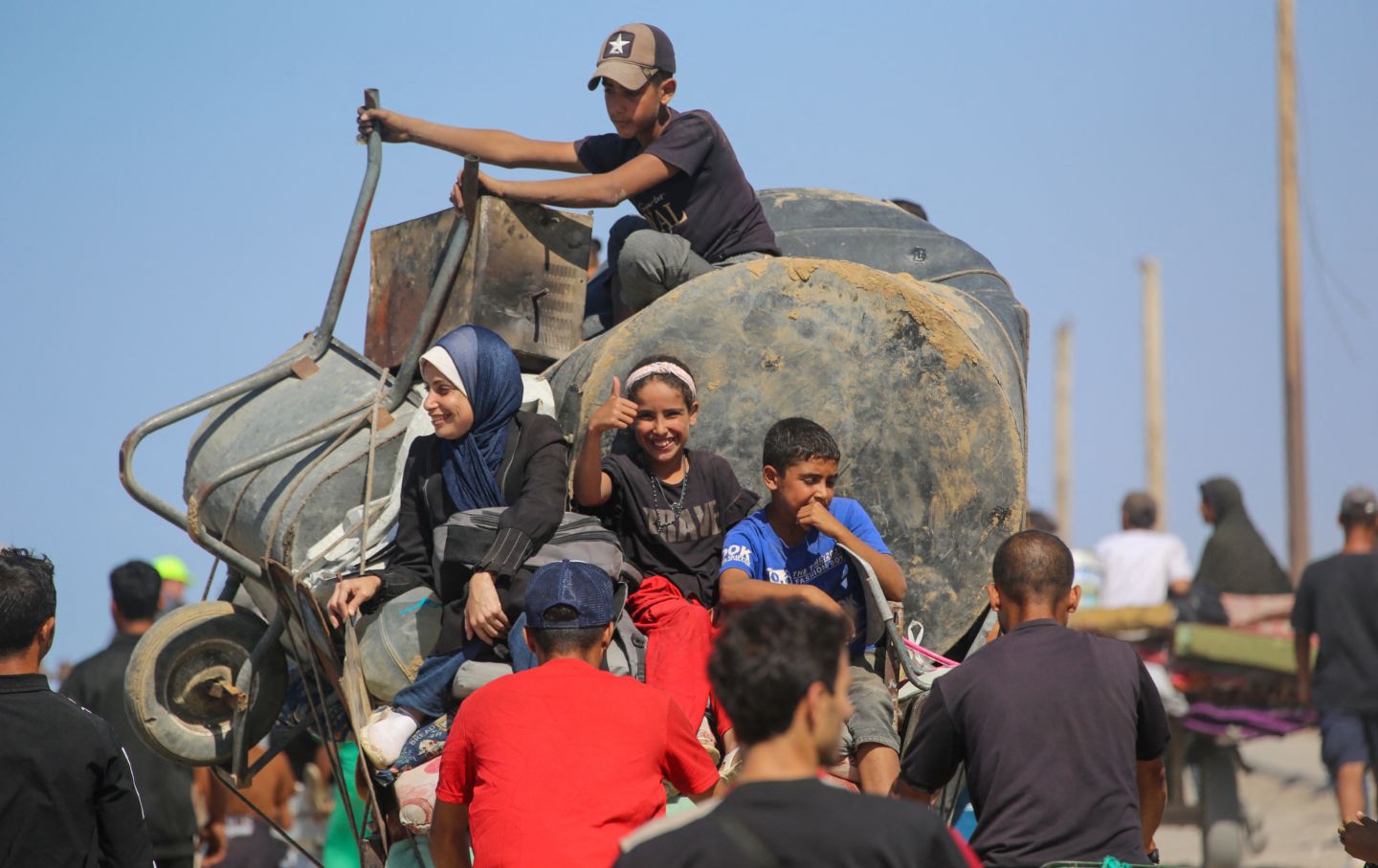#trauma
#trauma
[ follow ]
#resilience #ptsd #boundaries #sexual-assault #mental-health #grief #self-blame #displacement #healing #neurobiology
Miscellaneous
fromwww.theguardian.com
1 day agoFrom Bosnia to Brisbane: what child refugee Jasmina Joldic learned about peace, hate and the fragility of society
Nine-year-old Jasmina Joldic discovered her Muslim identity when her father was taken during the Bosnian war, forcing her family to flee to Australia.
Mental health
fromwww.theguardian.com
4 days agoA moment that changed me: my train crashed and then I heard a little girl crying
A runaway digger struck a train, causing derailment; passengers evacuated through windows, improvised caregiving occurred, and emergency services arrived amid injuries and shock.
fromPsychology Today
5 days ago"I Restrict Because I Deserve It"
This can be hard for onlookers to understand, but for people who have lived through trauma, chronic emotional invalidation, or unsafe relationships, self-blame can become an organizing principle. It offers a painful kind of order. If suffering is my fault, then at least it makes sense. Over time, that belief does not stay confined to memory. It begins to shape behavior.
Psychology
fromThe Verge
6 days agoYou need to watch the modern horror masterpiece, His House
There's an argument to be made that " the real monster is trauma" has become an overused trope in modern horror. Hereditary, The Babadook, and, much less effectively, Smile, are just a few higher-profile examples. But, if you ask me, few films have deployed this trope quite as effectively as the 2020 film His House. The film follows Bol and Rial, refugees from South Sudan, played by Sope Dirisu and Wunmi Mosaku.
Film
Higher education
fromwww.theguardian.com
1 week agoMy legacy is not Charlie Kirk': the university president building a culture of peace after violence
Astrid Tuminez returned immediately to lead and comfort Utah Valley University after a livestreamed campus shooting, prioritizing community needs while processing personal grief.
fromPsychology Today
1 week agoTrauma's Shadow Lingers in the Bedroom
When desire fades or the bedroom grows silent, we often point to the surface- boredom, stress, a lack of spark. But let me tell you, sexual problems are rarely about sex alone. Sometimes, they're about unresolved trauma -a quiet force that shapes how we love, touch, and connect. It's the shadow we don't see, but it moves us all the same. It makes decisions for us that we're not aware of.
Relationships
fromPsychology Today
1 week agoThe Cost of Unspoken Stories
The 2025 film Frankenstein reframes Mary Shelley's story as a narrative told across two worlds: Victor speaking on a freezing ship after being rescued, and the Creature recounting his long journey of wandering and despair. Healing Through Storytelling The film is structured through storytelling itself-Victor's tale told under duress, and the Creature's own response as a counter-story he had held inside for years. Their exchanges suggest how many relationships fracture when we fail to tell the stories that hold our pain
Film
fromwww.aljazeera.com
1 week agoSurvivors recall terror of landslides from North Sumatra cyclone
My mother-in-law said it was just thunder. I said, No, the house is shaking.' Not long after, boulders came crashing down, she recalled. My younger sibling was staying over. When the landslide happened, I kicked him to wake him up. If we had all been sleeping, we would have died in that house. Grabbing her daughter, Eleanor, Sri fled to the nearby church. From the hilltop, they watched in horror as another landslide completely destroyed their home.
World news
fromBuzzFeed
1 week ago11 Child Stars Who Opened Up About The Exploitation And Mistreatment They Faced From Their Parents
When Taylor Momsen was asked to explain her "bad attitude" on the set of Gossip Girl, she answered that her parents signed her up with Ford Modeling when she was just 2 years old. She said, "No 2-year-old wants to be working, but I had no choice. My whole life, I was in and out of school. I didn't have friends. I was working constantly and I didn't have a real life."
Film
fromPsychology Today
1 week agoTrauma Therapy Is Difficult for Individuals With Aphantasia
"Most places your mind saves JPEGs, mine has text files instead." This is how Mike (name changed for anonymity) describes living with complete aphantasia. Coined in 2015, aphantasia affects approximately 4% of the population and is a condition characterized by the brain's inability to visualize or imagine images. Though not classified as a disability or medical condition, it has a profound impact on Mike's daily life.
Psychology
Mental health
fromwww.theguardian.com
2 weeks agoIf Epstein's victims don't receive justice that is a ticking time bomb | V (formerly Eve Ensler)
Sexual abuse destroys bodily autonomy, self-worth, and agency, producing long-lasting psychological devastation compounded by societal misunderstanding and victim-blaming.
Photography
fromItsnicethat
3 weeks agoAmani Willett's photobook journeys through chronic illness and ketamine therapy to reach his younger self
A photographic sequence explores trauma and rebirth through surreal, overexposed imagery, mapping ketamine-assisted therapeutic sensations and personal transformation.
fromwww.theguardian.com
3 weeks agoAre you stuck in ordinary - but devastating - narcissism? There is a way out
Next: different walks around different parks with different friends, each with the same feeling of being warmed from the inside out; also, bumping into neighbours at the playground and feeling a part of my community. I remember powerful moments with my patients, who have felt understood, by me and within themselves. And I think of the moving messages from readers who have got in touch, sharing precious stories from their lives.
Psychology
fromwww.theguardian.com
4 weeks agoI don't believe in God but, as a trauma survivor, I'm learning to forgive myself | Jackie Bailey
Normally, a person goes about their life, making meaning of everything that happens to them, slotting it into a world that makes sense. Psychologist Bessel van der Kolk explains that a traumatic event short circuits this process. Trauma overwhelms a person, rendering them unable, in the moment, to integrate the event into their lives. In the context of spirituality, trauma is a hand grenade, exploding two of spirituality's primary functions: to help a person make meaning and feel at home in the universe.
Mental health
fromPsychology Today
1 month agoWhen We Have to Say, "I Don't Even Know Who I Am Anymore!"
Sometimes we get slammed with life tragedy, trauma, or grief so difficult and so prolonged that we finally fall to our knees in surrender to, "I don't even know who I am anymore." Whatever it is that we have always done to get by, to overcome, or maybe even to bypass, just isn't working anymore. In whatever way we have seen ourselves, be it as a strong person, a "weird" person, a bad or good person,
Psychology
fromwww.psychologytoday.com
1 month agoA Whole Picture for Healing
Trauma Culture blurs the line between survival wounds and the ordinary pain of living. Even in unsafe lives, small daily hurts can deepen distress and block healing. Healing can begin by tending to small, manageable wounds that restore agency. Full healing means repairing what keeps hurting inside, not just surviving events. A few days ago, I had the honor of presenting my new book, How Deep Is the Wound?, in the company of a panel of incredibly talented clinicians at my alma mater, NYU.
Mental health
fromIndependent
1 month agoBrother of Lynsey O'Brien, who died in cruise ship fall, carried out 'vicious' attack on a surviving sister, court hears
The brother of a girl who died when she fell off a cruise ship "viciously" attacked one of his surviving sisters, pulling out her hair extensions and biting her nose.
Miscellaneous
fromSlate Magazine
1 month agoMy Daughter Wants to Get a Tattoo to Commemorate the Worst Day of My Life
First of all, I'm so sorry that your family and daughter went through something so deeply traumatizing. The thing about experiences that emotionally damage an entire group of people at once is that everyone has to deal with it differently. I understand how reminders of this horrific day cause you tremendous pain. And I see how, for that reason, you'd be squarely against having someone you love tattoo such a reminder on their body where you can never not see it.
Parenting
fromPsychology Today
1 month agoWho Am I Now?
In my work as a psychiatric nurse practitioner, I've supported thousands of people navigating trauma, loss, and mental health challenges. But nothing prepared me for the identity crisis that followed the deaths of three of my children, Johnny, Reggie, and Miah. Each loss shattered something in me, not just emotionally, but existentially. I didn't just lose my children; I lost my sense of self.
Mental health
fromPsychology Today
1 month agoDoes Trauma Cause Body-Focused Repetitive Behaviors? Not Quite
When the causes of body-focused repetitive behaviors (BFRBs), such as hair pulling (trichotillomania), skin picking (excoriation disorder), or nail biting, are discussed, the question often arises: Are these behaviors caused by trauma? It's a fair question. The assumption makes intuitive sense. Many behaviors that cause physical harm or distress are linked to emotional pain or traumatic experiences. However, the science paints a more nuanced picture.
Mental health
fromPsychology Today
1 month agoFrom Fire to Sun: Why Therapy Fails
Many approaches treat trauma responses as "low-level" cognition: primitive, irrational, something to overcome through reason. They offer cognitive restructuring: "Let's examine the evidence that you're safe now." But this misses what's actually happening. My clients haven't failed to learn-they've learned extraordinarily well. They've achieved a sophisticated, integrated understanding of how to survive in genuinely dangerous contexts. The problem isn't that their thinking is distorted. It's that their highly accurate thinking is organized around contexts that were destroying them.
Mental health
World news
fromLondon Business News | Londonlovesbusiness.com
1 month agoThe man Russia tried to break: Part three the reconstruction of a man - London Business News | Londonlovesbusiness.com
A freed captive feels disoriented and overwhelmed by sensory relief, struggling to process freedom while craving ordinary foods and wondering what comes next.
fromPsychology Today
1 month agoWhat if You're Not the Problem, but the Pattern?
"I want to live a life I'm not disturbed by." It was an intense session with a new client, a 30-something single mother baffled by a long and winding trail of chaotic relationships-from partners whose fingers kept sneaking back to dating apps, to outbursts of rage toward those she loved most, often triggered by something trivial. A kind, intelligent woman with gentle eyes and a warm demeanor,
Mental health
fromConsequence
1 month agoBritney Spears Says She Has "100 Percent" Experienced "Brain Damage"
Remember the king tried to kill her but instead a guy secretly took her wings but anything from the father in heaven the real father whom is the one I only claim who loves unconditionally, Anything holy is never forgotten... her wings were holy so the king couldn't take them not one person could say they were restored and hidden locked in a secret holy stain glass church... not that this has any relevance with me but I do find it incredibly interesting.
Music
Miscellaneous
fromIndependent
1 month agoTanya Sweeney: I got three no-fault eviction notices in four years, so watching Aoife McGrath's viral video brought back bad memories
Aoife McGrath's TikTok of opening a registered letter triggered immediate physical and emotional reactions by resurfacing traumatic memories associated with such letters.
Miscellaneous
fromIndependent
2 months ago'I thought she was asking for help or directions' - young Indian woman racially harassed in Dublin city centre
A 24-year-old Indian data analyst in Dublin was racially harassed while walking home and remains traumatized; others have reported similar encounters with the same person.
fromwww.theguardian.com
2 months agoThank God we witnessed this': Palestinians on the ceasefire deal - Today in Focus Extra
In the early hours of Thursday morning, both Palestinians and Israelis were celebrating the news that a ceasefire deal between Israel and Hamas had been reached. Though there are still many uncertainties ahead and many points of disagreement to resolve an end to Israel's two-year war in Gaza has never seemed nearer. As Ansam Tantesh, an English graduate and would-be teacher, explains from inside Gaza, it has been a brutal period for those living in the strip.
World news
fromBuzzFeed
2 months agoThese Horrifying Delivery Room Stories Will Make You Want To Settle For Being A Cat Mom
Let's get this out of the way: I'm not a mom. I've never been pregnant. I've never given birth. So no, I don't have any firsthand stories. But I'm the youngest of four daughters - and I've heard plenty. And honestly, our mom ruined us. She loved being pregnant. She raved about her glowing skin, thick hair, and strong nails.
Parenting
fromIndieWire
2 months agoYes, Daniel Day-Lewis' Infamous Method Acting Style Is Just Like You've Heard, According to His Son
Situated above Ronan Day-Lewis, the writer/director of " Anemone" and son of Rebecca Miller and the film's star Daniel Day-Lewis, in his apartment is a painting of a luminescent creature you'll meet in the film during a particularly dreamy sequence. Day-Lewis, 27, is a painter himself, having shown work in New York, Los Angeles, Hong Kong, and beyond. He spoke to me over Zoom from his place in New York, where he just premiered " Anemone " at the New York Film Festival.
Film
fromPsychology Today
2 months agoThe Secret Superpower of Vulnerability
In his book The Narrative Brain: The Stories Our Neurons Tell, he points out that most of the Grimm brothers' fairy tales center on the vulnerability of their heroes. This vulnerability is often borne out of an earlier trauma-abandonment or orphanhood, for example-which leaves its character hypervigilant to danger and presumably with a certain level of cunning at recognizing and responding to that threat.
Psychology
fromPsychology Today
2 months agoOvercoming the Victim Mindset: Insights from 'Rise Above'
In Rise Above: Overcome a Victim Mindset, Empower Yourself, and Realize Your Full Potential (Penguin, 2025), psychologist Scott Barry Kaufman delivers a timely and incisive critique of what he calls "victim mindset culture"-the growing tendency for individuals to view themselves primarily through the lens of past hurts and limitations, rather than as active agents in their own growth and transformation.
Books
fromwww.theguardian.com
2 months agoGhost Trail review pain and paranoia as a Syrian refugee attempts to track down his torturer
The face of a Syrian refugee is the enigmatic key to this slow-burning drama-thriller, the fiction feature debut of French film-maker Jonathan Millet; it is hard, blank, withdrawn, yet showing us an inexpressible agony, a suppressed, unprocessed trauma, complicated by what is evidently a new strategic wariness. The refugee is Hamid (played by Adam Bessa), a former literature professor from Aleppo who is now in Strasbourg in France in 2016,
Film
fromBusiness Insider
2 months agoWe don't need more rigid screen rules and detoxes from phones
I was standing there, frozen in front of the shelves, phone in hand, scrolling through food lists that led to recipes that sucked me into the latest health trends. Ten minutes earlier, I'd come in for a bottle of almond milk. Now I was knee-deep in articles about the "five fruits to reverse aging" and a thread debating which pasture-raised vs organic eggs. My cart sat empty, my body stood still, but my thumb kept moving.
Mental health
fromPsychology Today
3 months agoGrowing Through What We Go Through
Western culture has taught us that suffering is a problem to be solved, discomfort a symptom to be medicated away, and trauma something to avoid at all costs. Yet, research by psychologists Richard Tedeschi and Lawrence Calhoun suggests we may have this entirely backwards. Their work on post-traumatic growth reveals that some of life's most profound transformations-positive changes in self-perception and relationships, greater self-awareness and confidence,
Mental health
US politics
fromLos Angeles Times
3 months ago'Is being gay a crime?' Venezuelan makeup artist rebuilds life after 125 days in El Salvador prison
Venezuelan men deported to El Salvador suffered severe trauma, public exposure, and legal jeopardy despite lacking criminal records or proper access to counsel.
Film
fromIrish Independent
3 months agoFilm review: 'Steve' - Cillian Murphy proves a class act with a troubled youngster, but can either escape the gravitational pull of their past traumas?
Cillian Murphy's principal Steve balances authority and empathy at a 1996 English reform school where a documentary crew's arrival escalates tensions and exposes trauma.
[ Load more ]

























